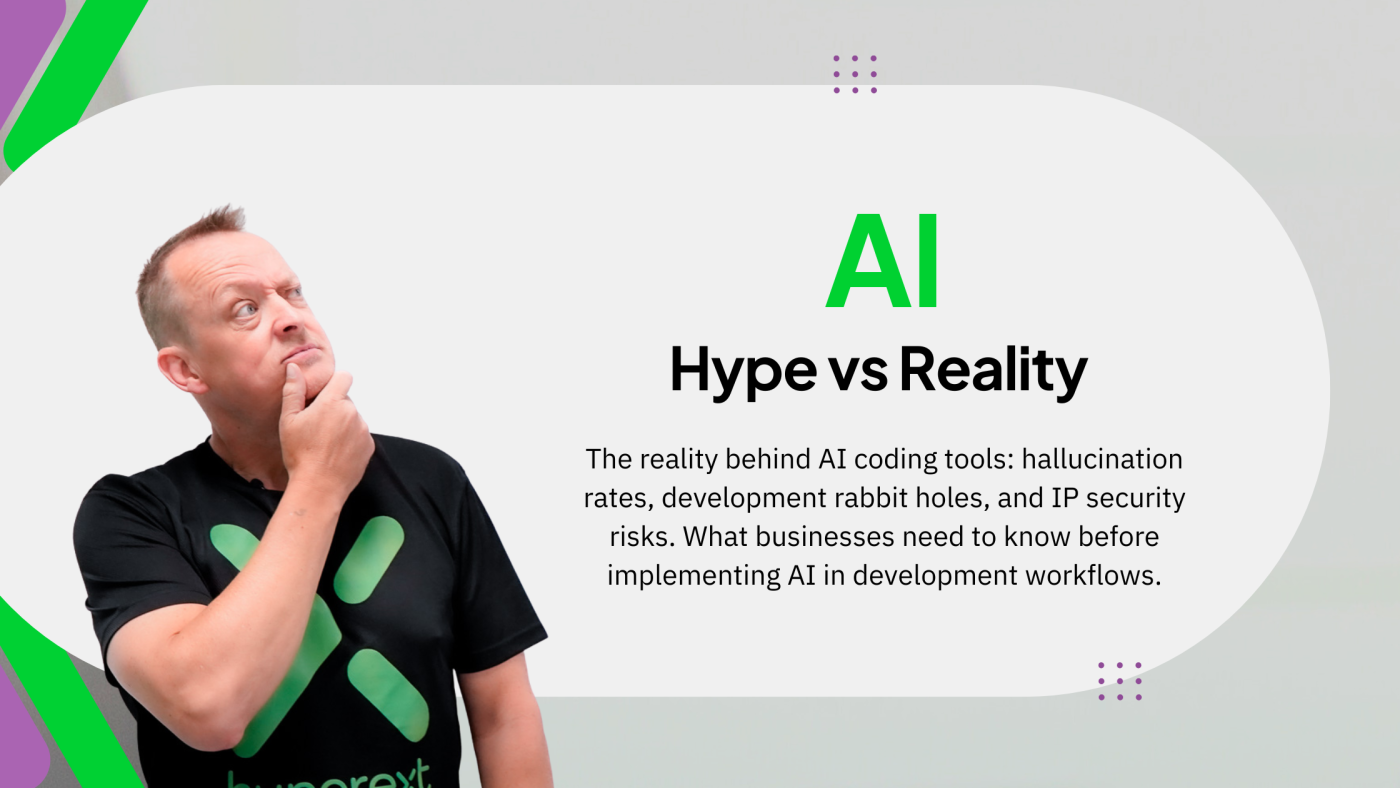
“AI coding tools are like employing a super intelligent software developer with amnesia.”
That’s how Steven Smith, MD at Hyperext, describes the current state of AI in software development after 12+ years of building integration solutions.
While AI tools promise to revolutionise coding, Steven and his team has discovered some challenges across AI:
The Amnesia Problem Give AI a complex task, and it starts forgetting the original brief halfway through. You end up in a development rabbit hole – constantly re-engineering prompts, losing context, and essentially rebuilding the same solution over and over.
AI Hallucinations Are Real Recent studies show that AI coding tools hallucinate up to 27% of the time, generating code that doesn’t compile, making up non-existent functions, or creating overly convoluted solutions. Research analysing 16 widely used AI code generators found that 24.2% of package names recommended were completely fictitious.
The Supervision Overhead AI coding tools require significant supervision and manual review, particularly for complex tasks that require precision or autonomous code generation. The time saved in initial coding often gets consumed by debugging and verification.
The Balancing Act But here’s the thing – AI is evolving every single minute. As one Microsoft engineer notes, “62% of developers are now using AI coding tools” despite these challenges. The key is finding the sweet spot between leveraging AI’s capabilities and not wasting time going down rabbit holes.
The IP Security Risk Perhaps most concerning is what happens to your source code when you use AI tools. Samsung learnt this the hard way in 2023 when engineers accidentally leaked sensitive code, meeting notes, and proprietary algorithms to ChatGPT across three separate incidents. The data is now permanently stored on OpenAI’s servers and used to train their models.
Research shows that 92% of security leaders are concerned about developers using AI-generated code, and 83% of firms are already using AI to generate code. Yet many don’t realise that when you input proprietary code into these tools, you’re potentially sharing your IP with competitors.
Our Approach at Hyperext:
- Test AI solutions in controlled environments
- Maintain human oversight for all AI-generated code
- Never input proprietary or client code into public AI tools
- Use private AI instances where possible to protect IP
- Refine our prompting strategies based on real-world results
- Stay pragmatic about what AI can and can’t do
The hype around AI is real, but so are the challenges. The companies that succeed will be those that approach AI implementation with realistic expectations, proper safeguards, and a clear understanding of the IP risks involved.
